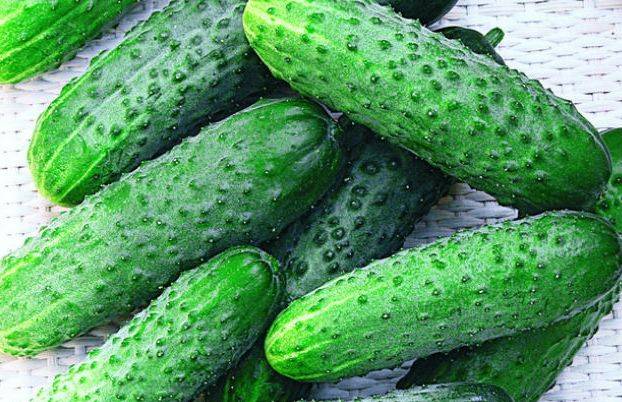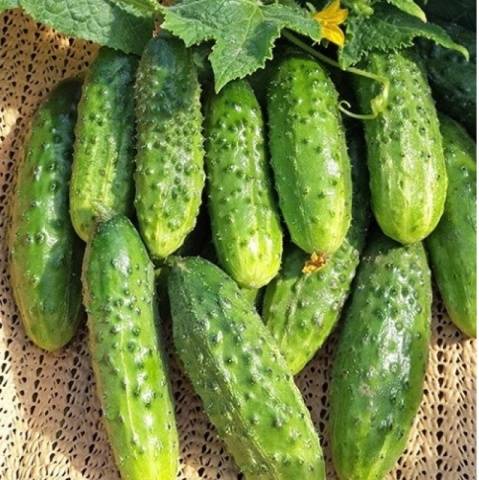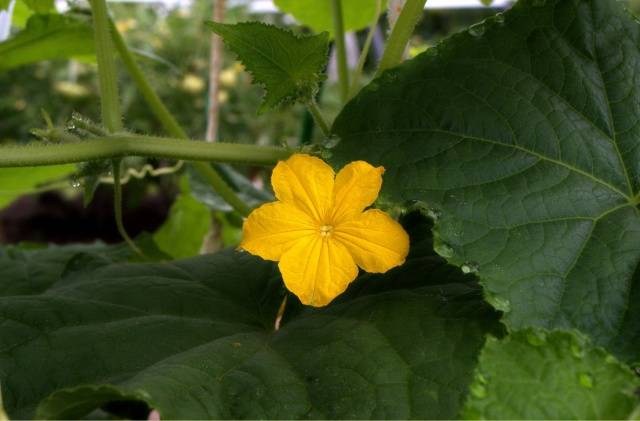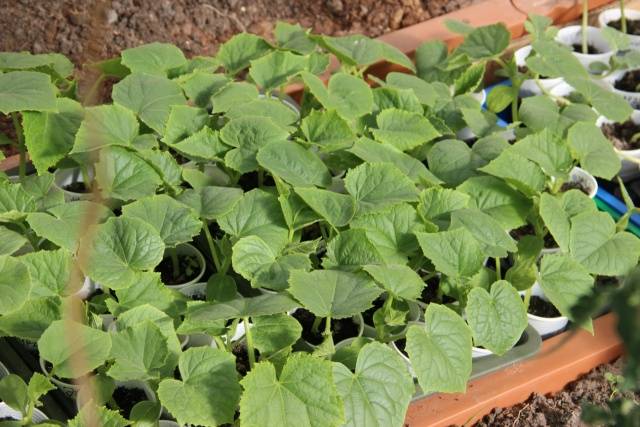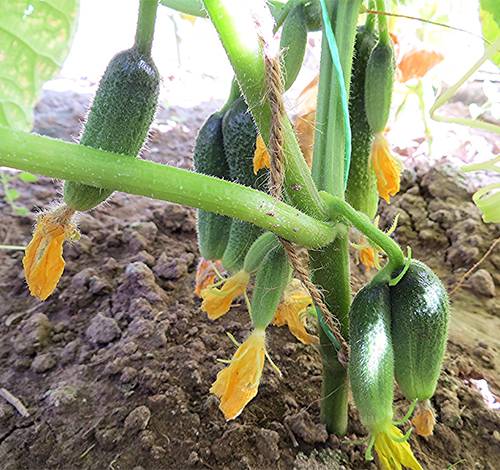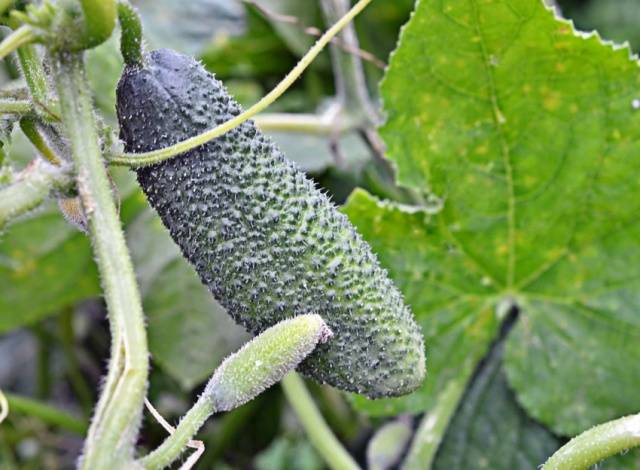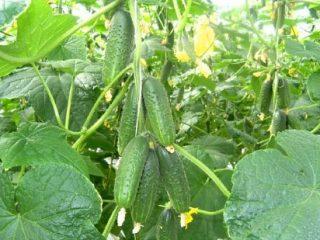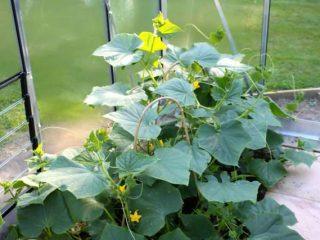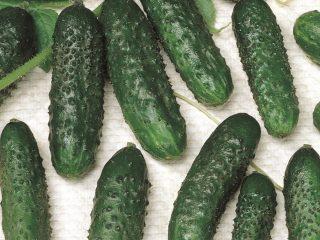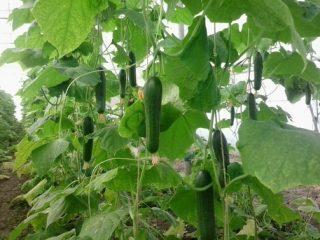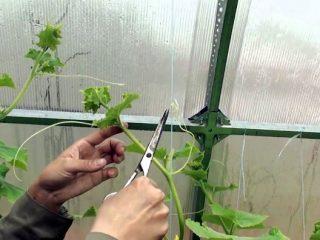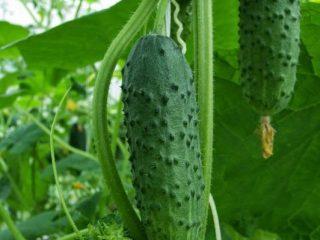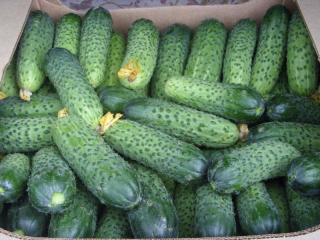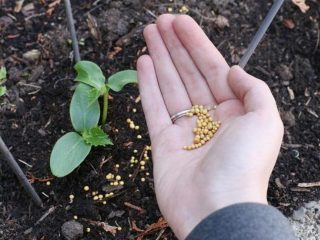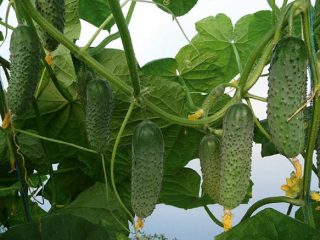Content
Hybrid cucumbers are famous for their beautiful, uniform fruit shape, early ripening, smooth ripening, and disease resistance. The cucumber hybrid Claudius f1, bred almost 20 years ago by breeders of AF Poisk from the Moscow region, meets generally accepted standards. Over the years, many farmers have adopted it on their plots and purchase new seeds every year to provide themselves with a guaranteed harvest.
Characteristic
The mid-season cucumber variety Claudia, according to the description, belongs to the parthenocarpic type. Cucumbers produce functionally female flowers, which all produce ovaries. There are no empty male flowers on such plants. Therefore, cucumbers are intended for greenhouses, where the possibility of pollination by insects is significantly reduced. Hybrid Claudius f1 is grown indoors; the plant has also proven to be an excellent variety for vegetable gardens.
The first fruits on Claudius cucumbers, as gardeners write in reviews, ripen 50 days after germination. Garden plants bring 10 kg per 1 sq. m, greenhouse cucumbers are twice as productive: 20 kg. By fulfilling all the requirements of agricultural technology, which include regular proper watering, timely fertilizing and temperature conditions, you get from 1 sq.m 25 kg of Claudia hybrid greens. Cucumbers are universally used: tasty in salads, suitable for pickling and marinades. The elongated shape of the fruit guarantees a beautiful appearance in preparations, and the quality of the pulp guarantees a pleasant taste in pickles.
According to the characteristics of cucumbers of the Claudia variety, attractive identical fruits are successfully sold, so the hybrid is grown on an industrial scale by large and small agricultural enterprises. Low susceptibility to diseases - less than 30%, which affect cucumbers in unfavorable weather, determines the high yield of the hybrid. The variety is characterized by keeping quality and withstands long-distance transportation well.
Advantages and disadvantages
The Claudia cucumber variety is distinguished by its durability in garden beds, and this is evidence that the hybrid has many advantages.
- Stable yield;
- Excellent taste properties;
- Suitability of hybrid fruits for pickling;
- Bundle type of fruiting of cucumbers;
- High commercial performance of the variety;
- Cultivation of the hybrid in open and closed ground;
- Unpretentiousness of the plant;
- Resistance to pathogens characteristic of cucumbers.
Among the disadvantages of Claudius cucumbers are the following:
- The hybrid form of the cucumber does not allow gardeners to collect the seeds themselves;
- Susceptibility to cucumber mosaic and powdery mildew, which is inherent in most cucumber varieties.
Description
Self-pollinating cucumber plants of the Claudia variety, as seen in the photo, have long vines that easily climb the support. The hybrid is convenient to grow on a trellis and needs to be tied up in greenhouses. The leaves are rich green, wrinkled.Female-type inflorescences are formed in bunches that hang from the vines. The hybrid does not have barren flowers. Each flower produces a cucumber.
The fruits of the cucumber variety Claudia are slightly elongated, the greens grow up to 9-12 cm, their diameter is 3-3.5 cm, they weigh from 80 g. The uniform green, without stripes, the surface of the cucumbers is slightly ribbed and pubescent, rough, with pronounced small numerous tubercles. The skin is tender, thin, with a characteristic cucumber taste and aroma. The pulp is dense, juicy, not watery, crispy, without voids. The taste is pleasant, no bitterness is felt. The seeds are small and do not interfere with taste perception.
Growing
The characteristics and description of the Claudia cucumber variety emphasize that the hybrid can be grown in a greenhouse and in beds. Cucumber seeds are sown directly in the ground, as well as in pots for growing cucumber seedlings.
Sowing for seedlings
When determining the timing of planting hybrid seeds for seedlings, we must remember that after germination, the Claudia cucumber bears fruit on the 50th day. Hybrid seedlings are ready for transplanting to a permanent location in 25-30 days. Usually the seeds of the Claudia variety are sown in April. At the beginning or end of the month - it depends on the weather conditions of the region and on the place where the cucumbers are planted, in a greenhouse or in a garden bed.
- For the substrate, it is better to purchase ready-made soil in gardening stores or prepare it from humus, peat and sawdust in a ratio of 2:2:1;
- A homemade substrate can be fertilized with some complex preparation that is easy to use. For example, “Kemira”, “Universal”;
- Seeds of the Claudius hybrid are usually sold in stores already processed.They are buried 1.5-2 cm into the soil and the pots are covered, creating a mini-greenhouse;
- Shoots appear in a warm place after 4-6 days. The shelter is removed and containers with young sprouts are kept for three to four days in a cool place - up to 19 degrees during the day and 16 degrees at night, so that the cucumber plants do not stretch upward;
- Water the cucumber seedlings as the soil dries every other day or less;
- Optimal temperature for grown seedlings: 23 degrees during the day and 17 at night;
- When the seedlings of cucumbers of the Claudia variety grow stronger and form three leaves, they are fed with a solution of 1 teaspoon of nitrophoska per 1 liter of warm water;
- Seedlings with 4-5 leaves, up to 20 cm high, are planted in late May or early June, when the ground warms up to 15 degrees.
In the garden bed, seedlings of Claudius cucumbers are placed 4 per 1 square. m, less often in a greenhouse: 3 plants.
Sowing in the beds
Seeds of the cucumber variety Claudia f1 are sown in the soil when its temperature rises to 15 degrees and the air warms up to 20-23 degrees. Between the rows of cucumbers of this variety, which will not have support, and the vines will spread on the ground, the optimal distance is 90 cm, between the holes – 30-35 cm;
- In the garden, Claudius cucumber seeds are sown to a depth of 3 cm;
- Place 2-3 seeds in a hole if you doubt 100% germination.
Watering and loosening
The high yield of the Claudia cucumber variety, as stated in its description, is possible with diligent care of the plants. In the garden, cucumbers are watered in the evening with warm water. It is best to do this with a watering can: the water spreads evenly under the spread cane without eroding the soil near the roots.Water carefully so as not to splash the leaves and contribute to the appearance of diseases. Each cucumber plant requires at least 3 liters of water. In the morning the soil is loosened and removed weeds. The greenhouse is regularly ventilated, maintain a humidity of 75-80% and a temperature of 18 to 25 degrees.
Formation of lashes
Claudius cucumber plants are tied up and shaped. The main vine is pinched when it grows to 1 m in the garden beds and 1.2 m in the greenhouse. Side vines are not allowed to grow more than 50 cm, and their shoots should not exceed 15 cm.
Feeding
Before harvesting, plants are fertilized twice every 10 days. Dissolve 5 g of urea, potassium sulfate and superphosphate in 10 liters of water. 2 liters of fertilizer are poured around the root of each plant, being careful not to wet the root. Feeding cucumbers with “Breadwinner” gives good results: 50 g per 10 liters of water.
The cucumber variety Claudia also increases fruiting during the harvest of greens. Plants are fertilized three times at the same interval:
- 1 liter of mullein and 25 g of nitrophoska are diluted in a bucket of water. Consumption: 1.5 l per root;
- 5 g of urea, 100 g of wood ash and 5 g of sodium humate per 10 liters of water. Consumption: 2 l;
- 25 g of azofoska per 10 liters of water. Consumption: 2 l.
Plant protection
Cucumbers of the Claudia variety are resistant to many diseases. Preventative measures must be used against those pathogens to which plants are susceptible. In the seedling phase, the fungicide “Previkur” is used. The drug "Thanos" is used in the garden beds. In greenhouses, Actellik will help get rid of aphids and whiteflies.
An unpretentious plant that requires a little attention. The results of the labor are fresh herbs and delicious preparations for the winter.
